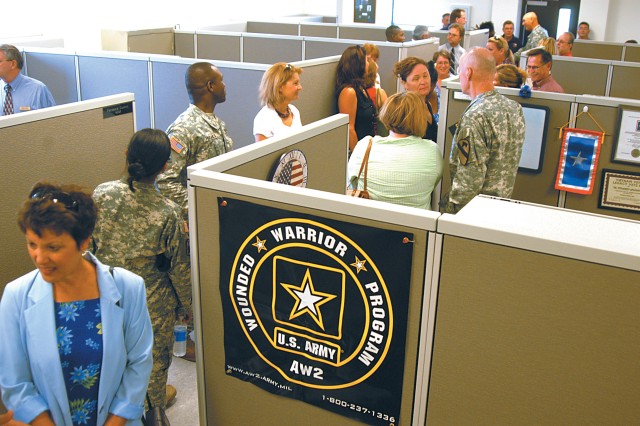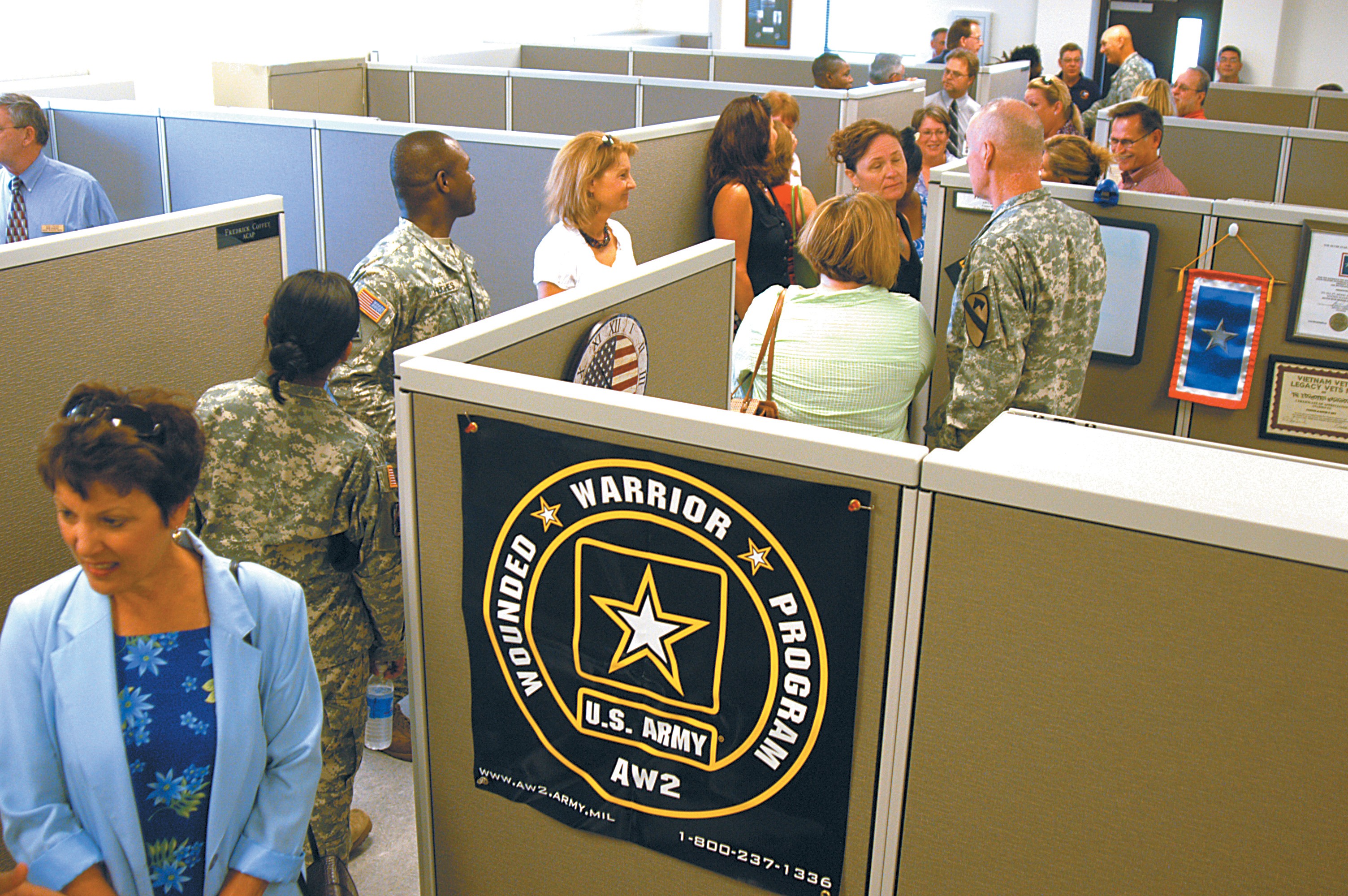Soldiers recovering from injury and illness require not only medical care but mental and spiritual assistance as well.
For Soldiers in the Warrior Transition Unit, who are focused on their recovery, there are time constraints and often physical limitations in their abilities to seek out the services offered to all Soldiers and Family members.
When the 6,000-square-foot Warrior Transition Unit Soldier and Family Assistance Center opened July 11, these Soldiers and their Family members received one stop shop for information and assistance they need during and throughout the recovery process.
"The number two interest of the (Department of the Army) is the care of its warriors," SFAC director Donna Morrisey said. "The center falls right in line with the priority for care of wounded warriors. It's not just medical care. It's their entire mental, physical and spiritual well-being. It's about getting Soldiers back to where they are feeling whole again."
Located near Carl R. Darnall Army Medical Center and Keith Ware Hall, the building provides wounded warriors access to benefits, assistance and counseling services they otherwise would have to traverse the installation to receive.
They receive one-on-one assistance at the center," Morrisey said. "Soldiers don't have to go place to place to receive services."
The building includes office space where Soldiers and their Families can meet with staff about the services, benefits and entitlements available.
Soldiers can get information and referrals for military and community services, financial counseling, substance abuse counseling, education information, Child, Youth and School Services assistance as well as meet with representatives from the Veterans Administration, the Army Wounded Warrior program and Army Alumni Career Program.
There also is a chaplain at the center to address spiritual needs.
Morrisey said she sees a lot of Soldiers taking advantage of their education benefits by going back to school and receiving certifications while serving in the WTU.
In their office space, representatives from the Army Wounded Warrior program provide advocacy and support to the most severely wounded or ill for as long as it takes,Yvonne Michek said.
The AW2 representatives help Soldiers put all the information together.
"We help with decisions," Michek said. "We provide information to help make the best decision possible for them."
All of the services work together to provide complete care for the wounded or ill Soldiers of the WTU.
When Fort Hood's WTU stood up June 15, 2007, it provided services for 175 Soldiers. Now, that number is 1,097.
The needs of Soldiers have evolved and the program has had to evolve as well.
Morrisey is working to ensure the center evolves as well in order to meet Soldiers' needs. She is adding service providers and services.
Soon, WTU Soldiers will be able to register their children in CYSS programs at the SFAC.


Social Sharing